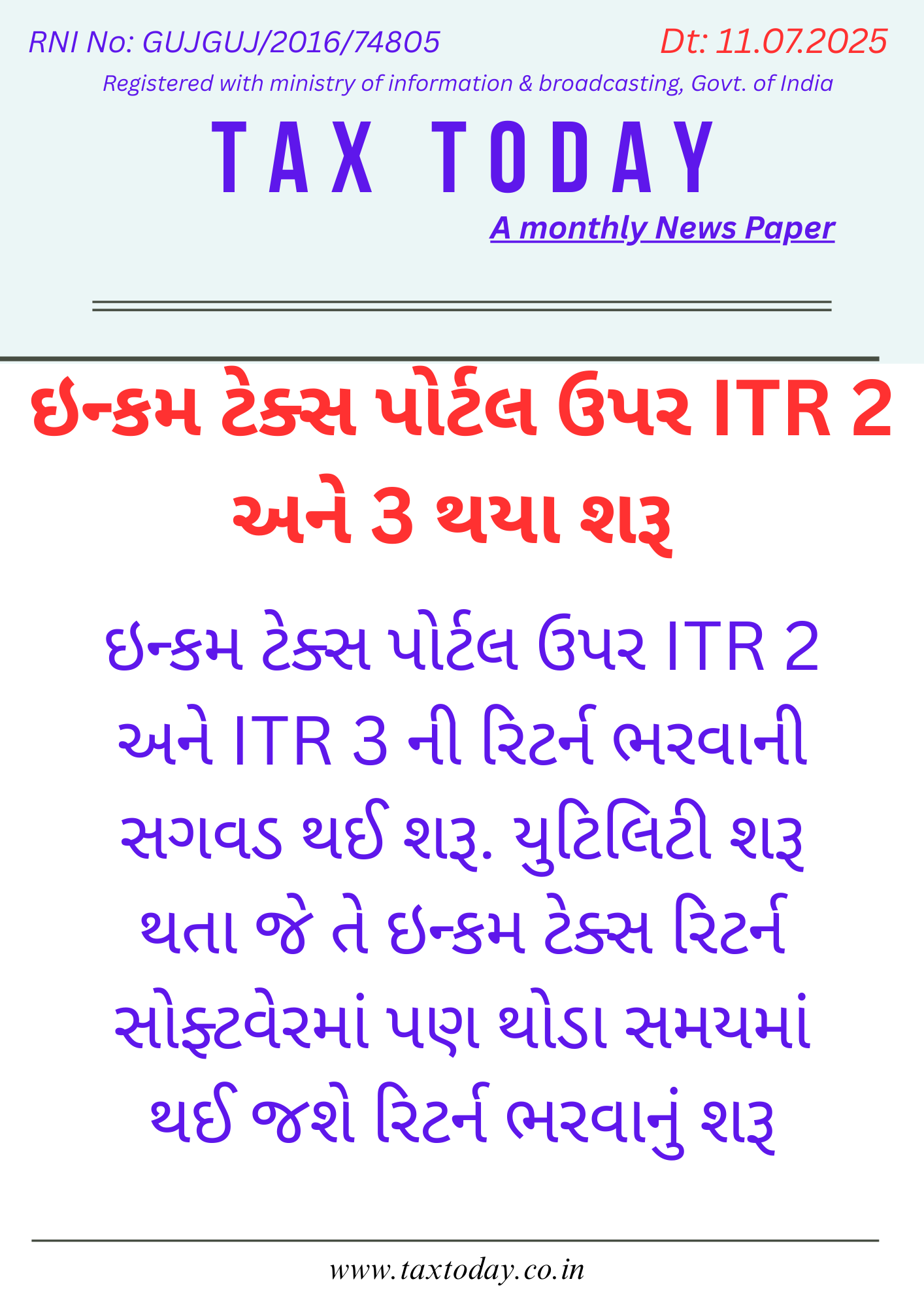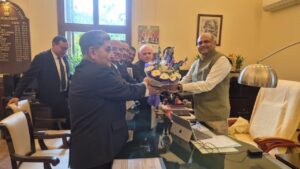GST WEEKLY UPDATE : 52/2023-24 (24.03.2024) By CA Vipul Khandhar

-By CA Vipul Khandhar
-
Year End Compliances:
LUT for F.Y 2024-2025:
Export of services/goods to outside India without payment of IGST.
Zero rated supply to SEZ without payment of IGST.
E-Invoicing Applicability for F.Y 2024-2025
E-Invoice is applicable in case the aggregate turnover is exceeded INR 5 crores in any preceding F.Y from 2017- 18, 2018-19,2019-20,2020-21,2021-22,2022-23 or 2023-24 ensure to generate the e-invoice W.E.F 01- April-2024.
GST Refund Application: Time barred for the year 2021-22.
The time limit for filing refund application is within 2 years from the relevant date. Please check if the time limit is going to be crossed and ensure to file the refund application before the due date.
Opt for QRMP Scheme for the year 2024-25.
Quarterly Return Monthly Payment Scheme – The registered persons whose aggregate turnover is up to INR 5 Crores in the preceding F.Y is eligible to file the returns quarterly, but GST payments shall be made on monthly basis.
New Series for Invoice numbers w.e.f 01.04.2024.
As per rule 46(b), the invoice number series should be unique for each F.Y. Please ensure to start a new invoice number series for F.Y 2024-25.
Reconciliations – Sales
Though the time limit to issue credit notes/debit notes and amendments to GST returns for the F.Y 2023-24 is 30-November-2024. It is advisable to do the reconciliations between Books vs GSTR-1 vs GSTR 3B to identify the difference and make necessary adjustments for the month of March 2024.
Reconciliations – ITC
Though the time limit to avail the ITC and amendments to GST returns for the F.Y 2023-24 is 30-November- 2024. It is advisable to do the reconciliations between Books vs GSTR 2B vs GSTR 3B to identify the difference and make necessary adjustments for the month of March 2024.
Reconciliations- RCM:
Ensure that all the purchase/expenses are accounted for the year ending 31-March-2024. Identify the list of transactions attracts GST-RCM from the purchase register.
2. GST department will check e way bill on real time basis due to election:
The Indian government has initiated real-time tracking of Goods and Services Tax ( GST ) e-way bills analytics following a notable surge in demand for specific goods and services, as announced by the Election Commission of India on March 16. In a press conference, Chief Election Commissioner Rajiv Kumar highlighted the importance of monitoring GST e-way bills analytics in real time to identify unusual spikes in the demand for certain goods and services.
- AAR & Important Judgements:
(i) Honble Madras Highcourt Decision Regarding Clarity on GST for Hostels Offering Residential Accommodation:
The Madras High Court has recently made a significant ruling regarding the imposition of GST on hostel accommodation. In a landmark judgment, Justice Krishnan Ramaswamy emphasized that rentals attract GST only if the rented building is used for commercial purposes. The court’s decision to quash the GST demand notice on hostels for working women and girls has brought clarity on the issue.
According to Justice Krishnan Ramaswamy, the key factor in determining the applicability of GST on hostel accommodation is whether the inmates use the premises for residential dwelling or commercial purpose. The ruling highlights that renting a residential unit attracts GST only when it is rented for commercial purposes. Therefore, if the end-use of the property is for residential purposes, it would not attract GST, as per the court’s ruling.
The judgment further underscores that to claim exemption from GST, the nature of the end-use should be residential. Importantly, it clarifies that the determination should be based on the purpose for which the property is used, rather than the nature of the property or the business of the service provider. Justice Krishnan Ramaswamy added that the issue of levy of GST on residential accommodation should be viewed from the perspective of the recipient of the service, not from the perspective of the service provider offering the premises on a rental basis.
The Madras High Court’s decision came in response to a batch of pleas filed by managements of private hostels for working women and girls. The pleas challenged the order passed by the TN State Appellate Authority for Advance Ruling, which had imposed 18% GST on such hostels. The court’s ruling emphasizes that the imposition of GST on hostel accommodation should be considered from the viewpoint of the recipient of the service, debunking the misconception that GST would be imposed on the revenue of the service provider.
The judgment clarifies that the imposition of GST is only on the recipient of the service, and it will be collected from the recipient, not the service provider. This pivotal ruling brings much-needed clarity and sets a precedent for the treatment of GST on residential accommodations provided by hostels for working women and girls.
In conclusion, the Madras High Court’s ruling not only quashed the GST demand on hostels for working women and girls but also provided crucial guidelines on the application of GST in such cases. This decision is poised to have a significant impact and provide clarity for similar situations in the future.
(ii) AAAR Regarding Classification of Water Sold under GST: AAAR directs AAR for re-examination
(Applicant – Mannarai Common Effluent Treatment Plant (P) Limited)
Background: Mannarai Common Effluent Treatment Plant (P) Limited, a registered entity under the GST Act, sought clarification on the classification of its output, particularly water sold after treating effluents from dyeing units. The company’s application for an advance ruling questioned whether the classification of water under heading 2201, as specified in Notification No.2/2017-Central Tax (Rate) dated 28.06.2017, was appropriate.
The AAR, in its order dated 19.06.2023, classified the output as the sale of goods and upheld the classification of water sold by the appellant under heading 2201, with a NIL rate of tax. Dissatisfied with the ruling, Mannarai Common Effluent Treatment Plant (P) Limited appealed to the AAAR, citing various grounds, including discrepancies in the AAR’s decision and the failure to consider crucial aspects of the processing carried out by the company.
Appellant’s Arguments: During the personal hearing before the AAAR, the appellant presented additional submissions, including a test report from the South Indian Textile Research Association (SITRA) and a consent order from the Tamil Nadu Pollution Control Board. These documents highlighted the industrial use and specific restrictions on the reuse of the treated water, challenging its classification under heading 2201.
The appellant argued that the effluent treatment process, aimed at achieving zero liquid discharge and making the water reusable in dyeing industries, resulted in significant reductions in various contaminants. They contended that equating their effluent treatment plant with sewage treatment plants overlooked the distinct characteristics and intended use of the treated water.
AAAR’s Decision: After considering the appellant’s arguments and reviewing the additional evidence presented, the AAAR concluded that a re-examination by the AAR was warranted. The AAAR emphasized the importance of considering the new evidence, including the test report and consent order, in determining the classification of the treated water.
Disclaimer:
This publication contains information for general guidance only. It is not intended to address the circumstances of any particular individual or entity. Although the best of endeavour has been made to provide the provisions in a simpler and accurate form, there is no substitute to detailed research with regard to the specific situation of a particular individual or entity. We do not accept any responsibility for loss incurred by any person for acting or refraining to act as a result of any matter in this publication.
THANKING YOU.





